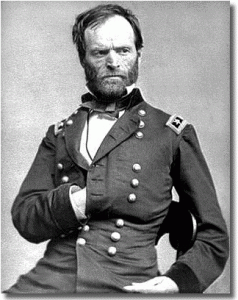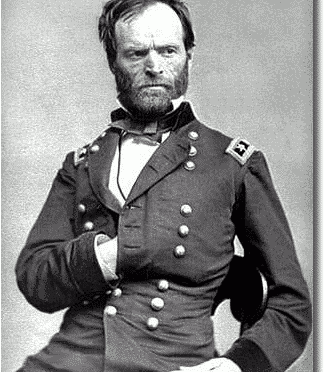 In “Depression v. Nervous Breakdown”, Sailer writes:
In “Depression v. Nervous Breakdown”, Sailer writes:
I noticed this when I was reading up on the Civil War and got to the formidable Gen. William Tecumseh Sherman’s psychological collapse in late 1861, in-between his strong performances at the battles of First Bull Run in 1861 and Shiloh in 1862. While organizing behind the lines for the next year’s campaigns, he had to be relieved of command so he could recuperate at home. Sherman later joked, “Grant stood by me when I was crazy, and I stood by him when he was drunk, and now we stand by each other.”
The Wikipedia page on Sherman uses the old-fashioned term “nervous breakdown” and blames “the concerns of command.” In contrast, James M. McPherson’s Battle Cry of Freedom sometimes uses the more modern term “depression,” and at one point suggests that Sherman was depressed by his vision of the logic of Total War.
Or was he suffering Post-Traumatic Stress Disorder over Bull Run?
Maybe Sherman was depressed because he realized Total War would someday result in the rise to power of pushy, hostile jews and the subsequent colonization of the entire White world by unarmed Amerindian, African, and Asian peasants. Then again, it isn’t likely Sherman would have ever recovered and continued to kill his cousins if he realized that.
The Jews, as a class violating every regulation of trade established by the Treasury Department and also department orders, are hereby expelled from the department [the “Department of the Tennessee,” an administrative district of the Union Army of occupation composed of Kentucky, Tennessee and Mississippi] within twenty-four hours from the receipt of this order.

